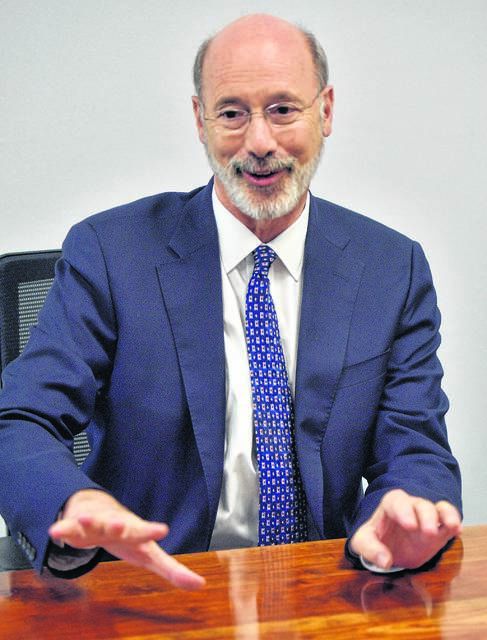Click here to subscribe today or Login.
HARRISBURG — Gov. Tom Wolf’s sixth budget proposal to Pennsylvania’s Republican-controlled Legislature will come out Tuesday, and the Democrat is expected to seek more money for public schools and emphasize the urgency of addressing student-loan debt and cleaning up lead and asbestos in schools.
Many details of the plan, which could exceed $35 billion, remain under wraps, although the governor’s office in recent days has rolled out some features. Wolf himself said his spending blueprint for 2020-21 fiscal year that starts July 1 would hold the line on taxes and contain “no surprises.”
To a large degree, Wolf is hemmed in by the Legislature’s Republican majorities. While Wolf’s relationship with top Republican lawmakers has been stable since a protracted budget dispute in 2017, they have generally blocked his most expansive proposals since he took office in 2015.
The current year’s budget plan was approved at $34 billion, but that’s not the whole story: Wolf’s administration recently projected nearly $800 million in cost overruns, primarily in medical and long-term care for the poor.
Meanwhile, budget-makers used hundreds of millions of dollars in transfers and payment delays to balance this year’s books, meaning they will need new sources of cash — or more one-time maneuvers — to make up the difference next year.
Persistent cost increases for health care, prisons and pensions can be expected to absorb much of the state’s natural growth in tax revenues. Thanks to healthy tax collections last year, the state has about $340 million sitting in reserve.
The state’s tax collections were stable through the first half of the fiscal year, reporting collections at $75 million, or 0.5%, ahead of expectations as of Jan. 1 toward its initial full-year estimate of $35.5 billion.
Wolf has said he will seek no new or higher taxes to support the state’s day-to-day operations.
Wolf is expected to continue his five-year push to give more money to public schools amid a lawsuit accusing the state of harboring deep inequities in how it funds the poorest public schools.
Wolf also said he will increase funding for Pennsylvania’s 14 state-owned universities, which are struggling with declining enrollments.
The governor also is renewing his campaign to raise the minimum wage and to win approval of a tax on Marcellus Shale natural gas production to underwrite a $4.5 billion “Restore Pennsylvania” infrastructure program that includes money for controlling floodwaters, building rural broadband and cleaning up natural disasters and blight.
It is his sixth year seeking a minimum wage increase and a Marcellus Shale tax, while the infrastructure program first rolled out last year. House Republican leaders have flatly rejected all of it.
All of this comes as the state is laboring under an estimated $67 billion debt in its two large public-sector pension systems over the next 30 years, a cost that is absorbing about $3.5 billion of the current fiscal year’s operating dollars, or 10%.
Budget makers have little will to quickly wean a fast-rising state police budget off highway funds — currently almost two-thirds of the state police’s $1.3 billion budget — and no answer to a public transit funding arrangement that is scheduled to shrink from $450 million to $50 million in 2022.





